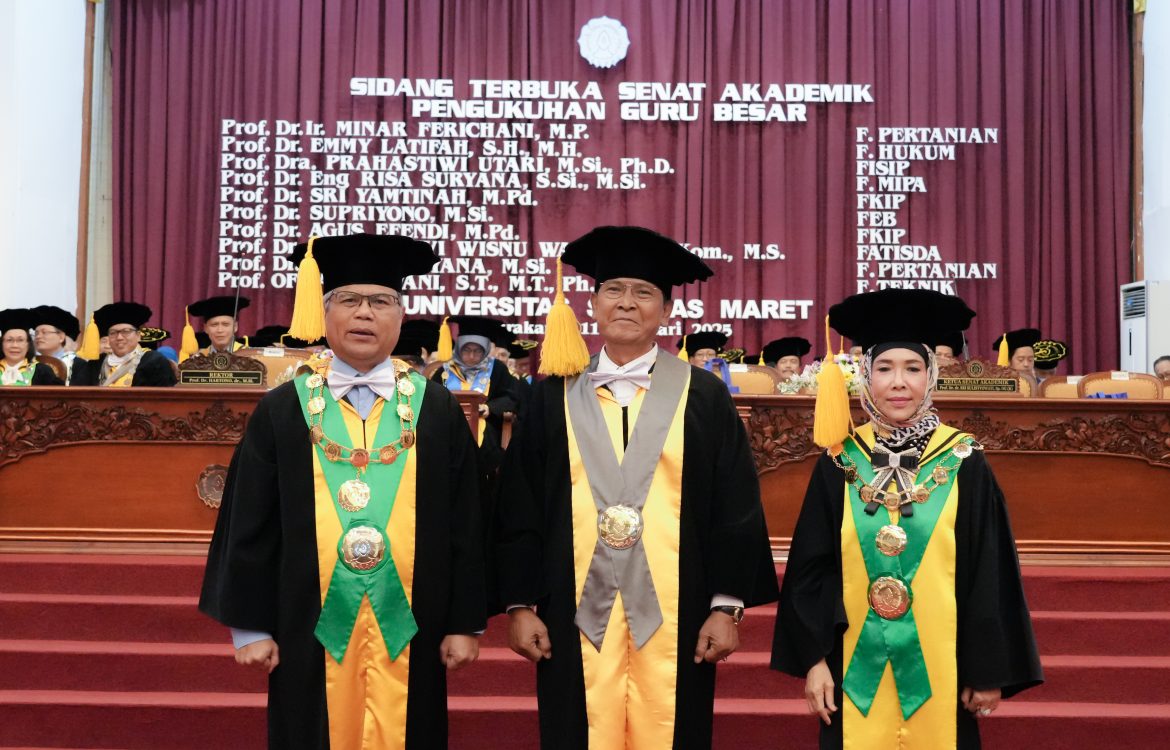
Prof. Supriyono, Professor of Conservation Economics: Stakeholder Conservation Awareness as the Foundation for Sustainable Development Planning
Prof. Dr. Supriyono, M.Si., was inaugurated on February 11, 2025, as the 25th Professor at the Faculty of Economics and Business (FEB) and the 347th at Universitas Sebelas Maret (UNS). The inauguration ceremony was held at the GPH Haryo Mataram Auditorium, UNS. He was conferred the title of Professor in the field of Conservation Economics, delivering an inaugural speech titled “Stakeholder Conservation Awareness as the Foundation for Sustainable Development Planning.”
In his address, Prof. Supriyono emphasized that conservation is a vital element in supporting sustainable development, which integrates economic, social, and environmental dimensions. Uncontrolled exploitation of natural resources, he noted, threatens ecosystem sustainability and adversely affects human well-being. Sustainable development is not solely focused on economic growth but also on ensuring environmental preservation for future generations.
“The success of conservation efforts depends on the involvement of multiple parties, including the government, private sector, communities, and international institutions. Multi-stakeholder collaboration is necessary to develop inclusive and sustainable policies. The government plays a central role in formulating regulations and allocating resources, while the private sector contributes through innovation and corporate social responsibility,” he explained.
Sustainable development is built upon three key pillars: economic, social, and environmental. The economic dimension emphasizes resource efficiency and the advancement of green technologies; the social dimension focuses on equity and community well-being; and the environmental dimension prioritizes ecosystem preservation through prudent management of natural resources.
Soil and water conservation are key priorities within sustainable development initiatives. Practices such as terracing, watershed rehabilitation, and efficient irrigation technologies have proven effective in reducing land degradation and addressing clean water scarcity. Case studies in Indonesia demonstrate the success of land rehabilitation and water management programs rooted in community participation.
Ecosystem conservation—particularly of forests and wetlands—plays a critical role in mitigating climate change. Well-preserved ecosystems can absorb carbon dioxide and help reduce the impact of global warming. These efforts contribute directly to the achievement of global goals, including Sustainable Development Goal (SDG) 13: Climate Action.

